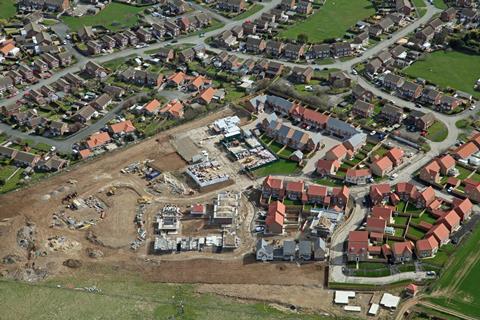Influential Policy Exchange think tank suggests radical reform of planning system to build more homes

Local politicians should lose their power to decide planning applications, according to a radical end-to-end study of the planning system by influential right-leaning think tank Policy Exchange.
The report, published this week, found that local elected politicians should be given a reduced role in drawing up slimmed-down local plans, but that deciding individual applications should become a purely administrative task.
Policy Exchange’s report concluded that the basic principles of the planning system hadn’t changed since its establishment in 1947 and was now “wholly out of sync with the needs and desires of people, businesses and wider society.”
To tackle this, it recommended that local authorities be stripped of their power to determine land use - such as residential, commercial or agricultural - on individual sites via local plans. Instead, it said authorities should simply designate land as available for development or not. Beyond that, local plans should confine themselves to drawing up prescriptive rules against which individual applications are judged – with the presumption that applications will be approved if they comply with those rules.
Policy Exchange said the implementation of the recommendations would allow the UK to meet housing need, while delivering beautiful places because developers will compete on quality of design.
In a foreword to the report, Edward Glaeser, professor of economics at Harvard University, said: “By eliminating uncertainty about the permitting process, development can become faster and cheaper. If the rules of the game are clear from the beginning, then builders will be able to deliver the housing England needs.”
The report said the current system was characterised by excessive planning restrictions which caused a redistribution of wealth and income from renters to homeowners and increased the cost of real estate. It added that the complexity and risk of the planning system diminished the country’s base of small and medium sized developers, with influence captured by the ‘noisy minority’ of anti-development interests.
The think tank suggested that designation of land for development should not be determined by any prediction of need, but instead be dependent on factors such as whether land has good access potential, what environmental disturbance its development would entail and an existing built development’s potential to expand.
Paul Smith, MD of The Strategic Land Group, agreed with the diagnosis. “It’s very clear that the current system is not working - only around half of councils currently have an up-to-date Local Plan, and housing supply is significantly short of what is required to address the housing crisis,” he said.
However, he said he wasn’t sure Policy Exchange’s prescription was right. “The challenge for this sort of system is ensuring that placemaking isn’t lost. Ensuring that a mix of uses can be achieved, and that gentle density can be encouraged in the right places will require careful thought around how the rules governing the form of development are set up.”











No comments yet